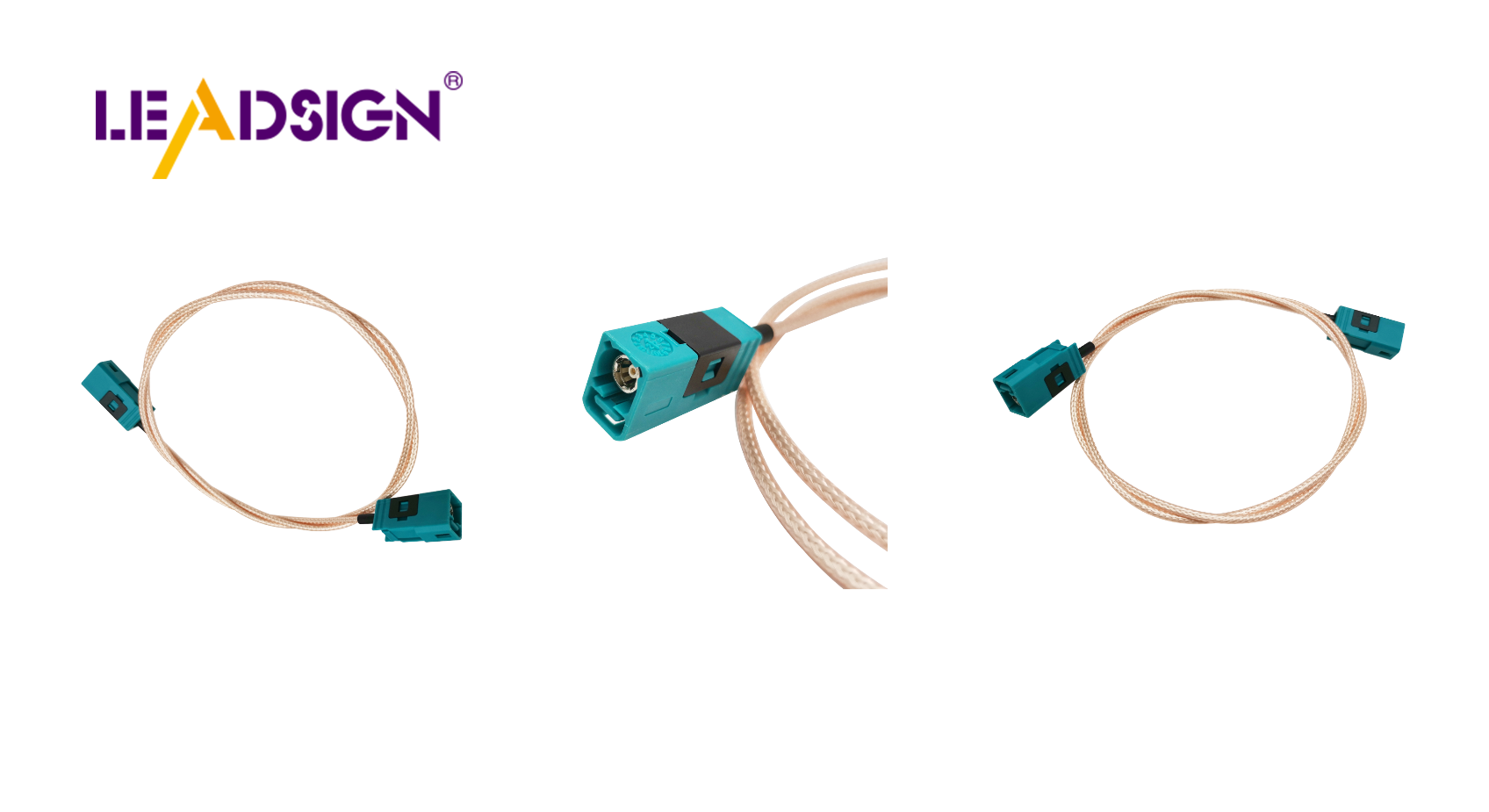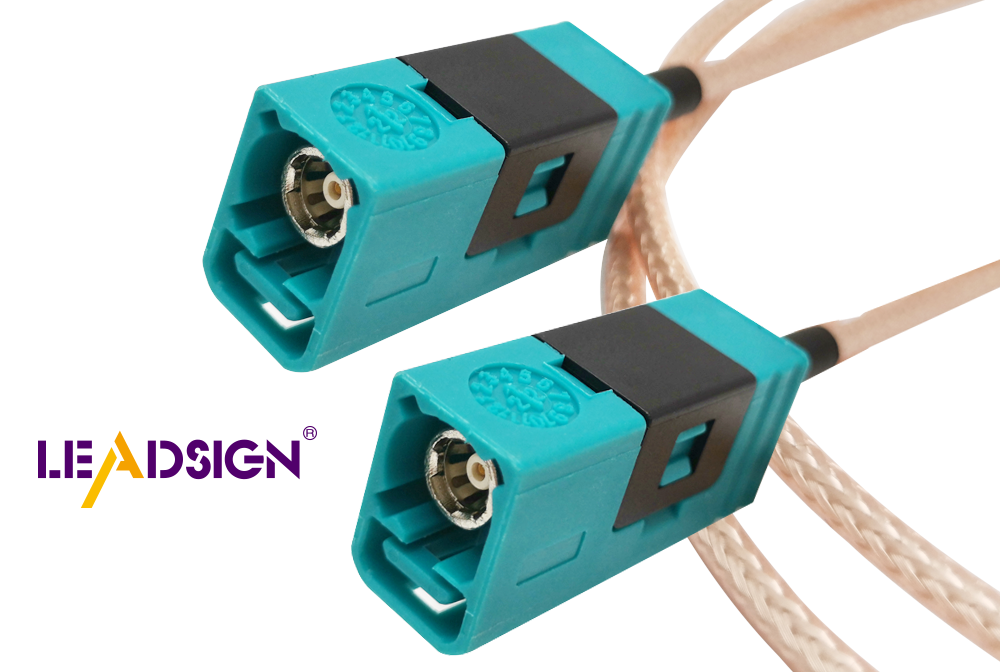Discover Reliable Automotive Electrical Connectors Types

Car electrical connectors, including various automotive electrical connectors types, are very important for cars to work well. These connectors must handle tough weather and stay connected. If they fail, it can cause shorts or fires. Good connectors have strong designs and locks. They also follow rules from groups like ISO or SAE. This makes sure they work safely in cars.
Types of Automotive Electrical Connectors

Blade Connectors
Features and Applications
Blade connectors are a flexible choice in car electrical systems. They have a flat metal piece that fits into a slot. This makes the connection strong and steady. Blade connectors are used in many car parts like engine control and audio systems. They can handle medium power, which suits these uses.
Advantages and Limitations
Blade connectors have good points. Their simple design keeps them connected well, reducing disconnection risks. They're easy to put in and take out, so car workers like them. But they also have downsides. They aren't great for high power because they can't handle heavy loads. Bad weather can cause rust, making them work less well over time.
Pin Connectors
Features and Applications
Pin connectors, or pigtail connectors, are key in car electrical setups. They have a pin that goes into a socket for a tight fit. Pin connectors work well with high power things like headlights and starter motors. They carry big electric loads, so they're very useful here.
Advantages and Limitations
Pin connectors have strong points too. They make solid connections for high currents, working well under pressure. The colored ends help match wires easily, cutting down mistakes when installing them. But they also have issues. Their complex design might be hard to install if you're not used to it. Plus, they need more room than other types.
Butt Connectors
Features and Applications
Butt connectors join two wires simply in a line. They're often used where easy connection is needed in cars, like fuse boxes or batteries that need frequent changes or fixes.
Advantages and Limitations
Butt connectors offer benefits too. They keep wires connected tightly to avoid coming loose, ensuring steady performance. They're simple to use even if you're not an expert with tech stuff. However, butt connectors aren't perfect either; they're not meant for high power since they're made for ease rather than strength against heavy loads or harsh conditions.
Ring Connectors
Features and Applications
Ring connectors are important in car electrical systems. They have a round metal ring that fits over a bolt or screw, making a strong connection. These connectors are often used for grounding and battery ends. Their shape keeps the connection steady, which is key for the car's electric parts to work well. Ring connectors are great where there are lots of shakes because they stay tight even when things move.
Advantages and Limitations
Ring connectors have many good points. Their design makes sure connections stay strong, even with shaking or moving. This is perfect for important jobs like hooking up batteries. They're also easy to put on and take off, making fixing things simpler. But they do have downsides too. You need a tool to put them on, which can take more time than other connector types. Plus, they're not good if you need to unplug things often.
FAKRA Connectors
Features and Applications
FAKRA connectors are special for high-frequency uses in cars. They're used in radios, GPS, and entertainment systems. FAKRA connectors have a safe coding system that stops wrong hookups, ensuring correct connections every time. They handle fast data speeds across many frequencies, perfect for new car communication tech.
Advantages and Limitations
FAKRA connectors offer lots of benefits. They meet tough car industry rules for being strong and lasting long. The main and extra locks make them secure when putting together, while different sizes help save space when installing them. However, FAKRA connectors aren't without issues. Their complex design can be hard to install if you're not used to them. Also, they're not great for low-frequency tasks compared to other connector types.
Performance Standards for Automotive Connectors
Why Performance Standards Matter
Performance standards are very important. They keep car connectors safe and reliable. These rules make sure connectors can handle tough car conditions like heat, shaking, and wetness. When makers follow these rules, their products work well in cars.
Keeping Safe and Reliable
Safety and reliability are key in cars. Good connectors stop bad connections, shorts, and fires. For example, FAKRA connectors give strong links for RF signals. They work great even when it's rough outside. This is crucial for things like cameras that need real-time data.
Following Industry Rules
Following industry rules means car connectors meet certain standards. Rules like USCAR-2 and SAE J2030 say what connectors should do in cars. These help keep quality the same across the industry.
Important Performance Standards
Knowing performance standards helps pick the right car connectors. These standards show how to test if connectors work well and last long.
What USCAR-2 Needs
USCAR-2 is a rule by SAE for testing car terminals and connectors. It has many tests to check reliability in cars. It looks at things like heat resistance which keeps connectors working well in tough spots.
What SAE J2030 Needs
SAE J2030 sets testing needs for car connectors to meet real-world demands. It checks how strong they are under stress or bad weather conditions.
Testing Ways for Performance Standards
Testing ways check how good car electrical connectors are under different situations.
Environmental Tests
Environmental tests see how well connectors do in different weather conditions. Tests like shaking or salt spray check if they stay strong over time.
Electrical Tests
Electrical tests look at how well connectors carry power without problems. This makes sure they handle high data speeds safely in modern cars.
Mechanical Tests
Mechanical tests check the strength of connectors against pulling or bending forces. Strong connections matter because cars move a lot.
Picking the Right Car Connectors
Choosing the right car connectors is very important. It helps cars work well and stay safe. You need to know some things to make a good choice.
Things to Think About
What It's Used For
First, think about what you need the connector for. Different jobs need different connectors. For example, engine control needs connectors that handle heat and shaking. But for music systems, you need ones that send data fast. Knowing what you need helps pick the best connector.
Weather Conditions
Weather matters a lot when picking car connectors. They must survive tough weather like heat, wetness, or chemicals. Under-hood connectors should resist heat and chemicals. Outside lights need waterproof ones. Checking these conditions keeps connectors working well.
Tips for Choosing
Check Connector Details
Look at connector details before choosing one. Things like how much power it can handle and what it's made of are important. Power-hungry parts need strong connectors. Rust-proof metals last longer too. These details help match connectors with your needs.
Ask Experts
Talking to experts can really help pick the right car connectors. They know a lot about new connector tech and rules like USCAR-2 and SAE J2030 that keep things safe and reliable. Experts give good advice on which connector fits best, helping you choose wisely.
Reliable car electrical connectors are very important. They keep cars safe and working well. These connectors must handle tough things like heat, shaking, and wetness. The blog talked about different connector types like blade, pin, butt, ring, and FAKRA. Each type has special uses for cars.
Rules like USCAR-2 and SAE J2030 make sure these connectors are strong and last long. When picking connectors, think about what you need them for and the weather they will face. Check what each connector can do and ask experts to make sure they fit your car's needs. This way, cars work their best and stay safe.
See Also
Understanding HSD Connectors Essential for Automotive Applications
Why FAKRA Connectors Are Crucial for Automotive Systems
Significance of Fakra Connectors in Today's Vehicles

